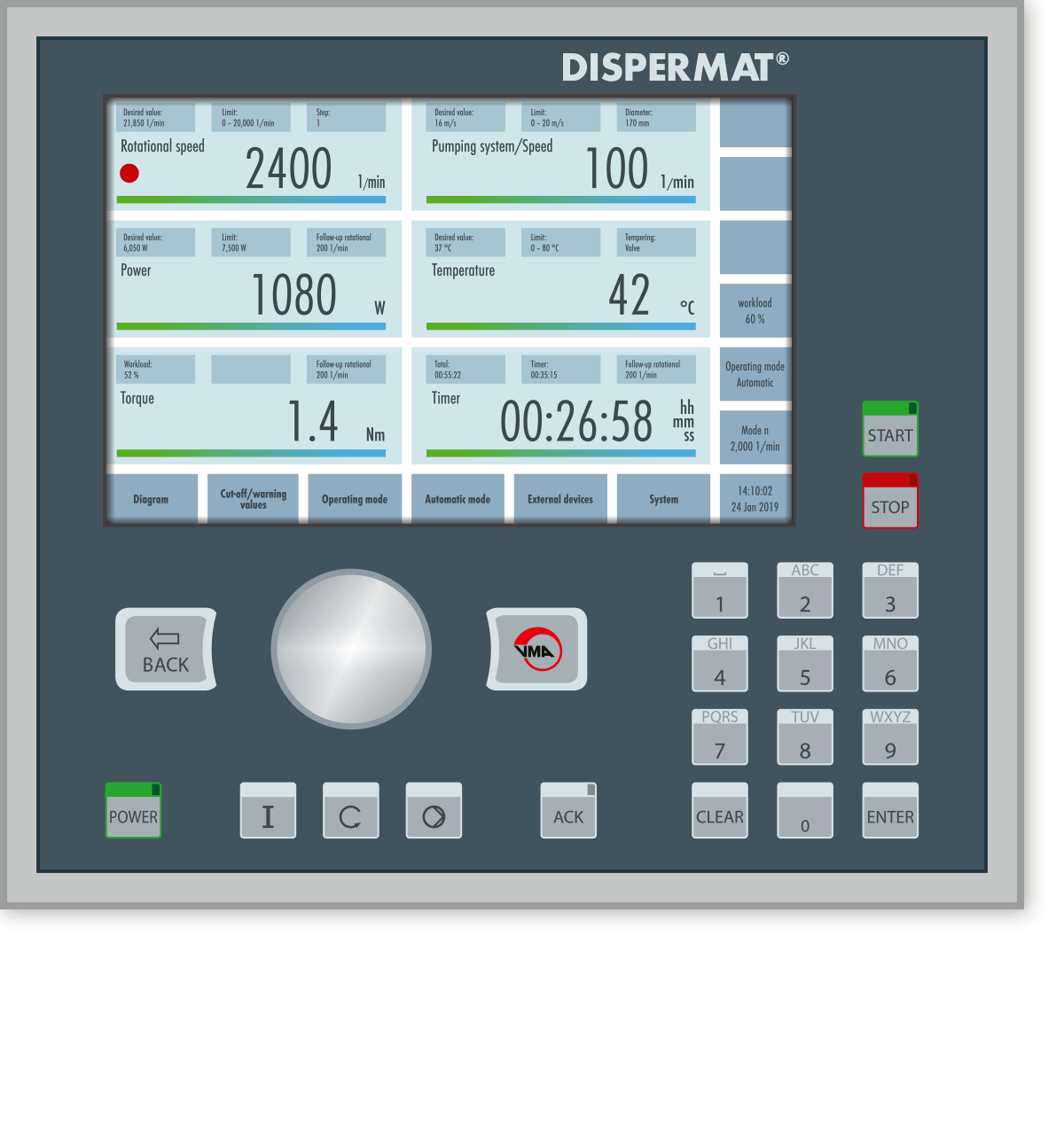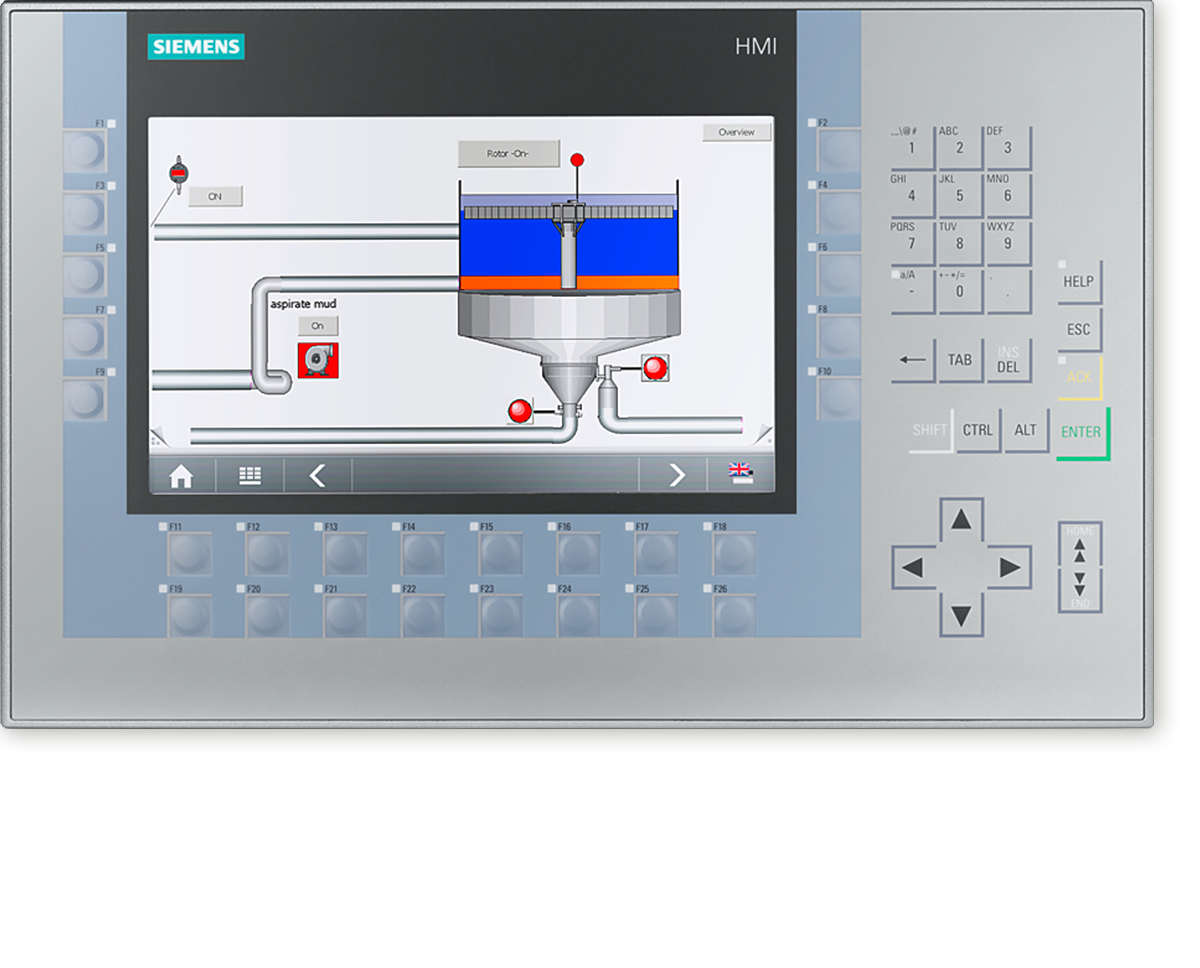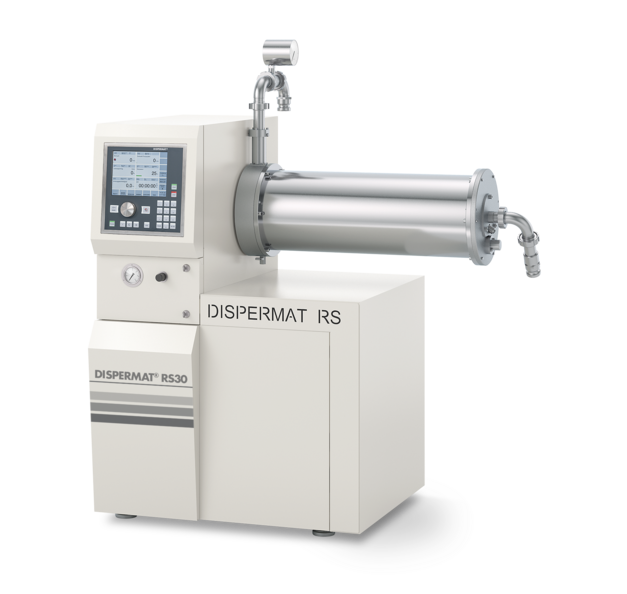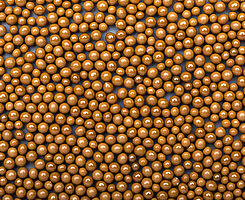DISPERMAT® RS30 bead mill
Horizontal agitator ball mill for production
- Power
- 30 kW
- Product
- 150 - 1000 litres / hour
- Control
- C / PLC
For many years VMA-Getzmann has been a specialist in dispersion and milling technology with the DISPERMAT® and TORUSMILL® dissolver, bead mills and basket mills. The new horizontal bead mill series with a more
Description
DISPERMAT® RS: New generation of horizontal bead mills for fast and excellent grinding results in the passage and circulation process
For many years VMA-Getzmann has been a specialist in dispersion and milling technology with the DISPERMAT® and TORUSMILL® dissolver, bead mills and basket mills. The new horizontal bead mill series with a chamber volume from 5 to 30 litres is made for universal use.Today`s demanding application require also ultrafine particle size. Therefore it is suitable for grinding bead diameters from 0.3 mm up to 2.5 mm. With this flexibility the horizontal bead mill DISPERMAT® RS can operate a wide range of products and viscosities.
The agitator ball mill can be taken apart in just a few steps allowing a rapid product change. The optional cooling of the rotor allows the grinding of temperature-sensitive products. To prevent metal wearing of parts during the milling process, the horizontal bead mill DISPERMAT® RS can be equipped with ceramic or plastic lining. The wearing of those materials are not changing the color or transparency of the product. The shaft seal is a single mechanical seal developed by VMA-GETZMANN. The compact design of the seal cartridge enables a quick and easy cleaning or replacement. The sealing liquid is integrated in the machine housing.
DISPERMAT® RS: Durable and particularly economical agitator ball mill for the production
- ideal for single pass and re-circulation mode
- simple and robust design
- drive shaft with double bearing
- large screen for high troughputs
- sealing system for easy maintenance
- use of grinding beads of ceramic, glass or stainless steel
- double walled grinding chamber with spiral guided cooling water and quick connections
- integrated pressurized sealing system
- simple and compact cartridge
- closed machine housing
- all parts easy accessible for servicing
- extreme long life time of screen
- the milling system is available in hard metal, ceramic, plastic, etc.
Highlights DISPERMAT® RS30 bead mill
<p>FINE GRINDING<br /> down to the nano scale</p>
<p>MILLING SYSTEM<br /> made of ZrO2 or SiSiC</p>
<p>PROCESS CONTROL<br /> repeatable dispersion results</p>
<p>SPEED ADJUSTMENT<br /> with rotary pulse encoder</p>
<p>SOFTWARE<br /> documentation, research and QA</p>
<p>SINCE 1972<br /> quality, precision & durable technology</p>
Features
Process control
The DISPERMAT® RS production bead mill can be equipped with various control technologies.
C technology

DISPERWHEEL® speed adjustment
infinitely variable speed adjustment with rotary pulse encoder
Large color display
indications of speed, torque, power, product temperature, timer and peripheral speed
Repeatability
dispersion method: constant speed or constant mechanical power input for optimum repeatability, temperature‒based dispersing
Data recording
recording of the process parameters with graphical indication
Switch off parameters
switch off function for temperature, speed, torque and power
Database 100 individual PRESET configurations for speed, time, switch off parameters, ramp function, etc.
Power compensation
net power calibration
Connectivity
USB (Wi-Fi, LAN expected in 2022)
WINDISP 7©
data interface for WINDISP© 7 software for documentation, analysis, research, development and quality control
PLC technology

The DISPERMAT® and TORUSMILL® dissolvers, bead mills and basket mills can also be fitted with the PLC-control. The graphic display allows for an indication of the operational parameters such as speed, power output, peripheral speed of the milling tool, torque and product temperature. The combination of a graphic display and the standardized PLC-control allows for an extension as well as for an adaptation of the control system to further process control applications at any time.




